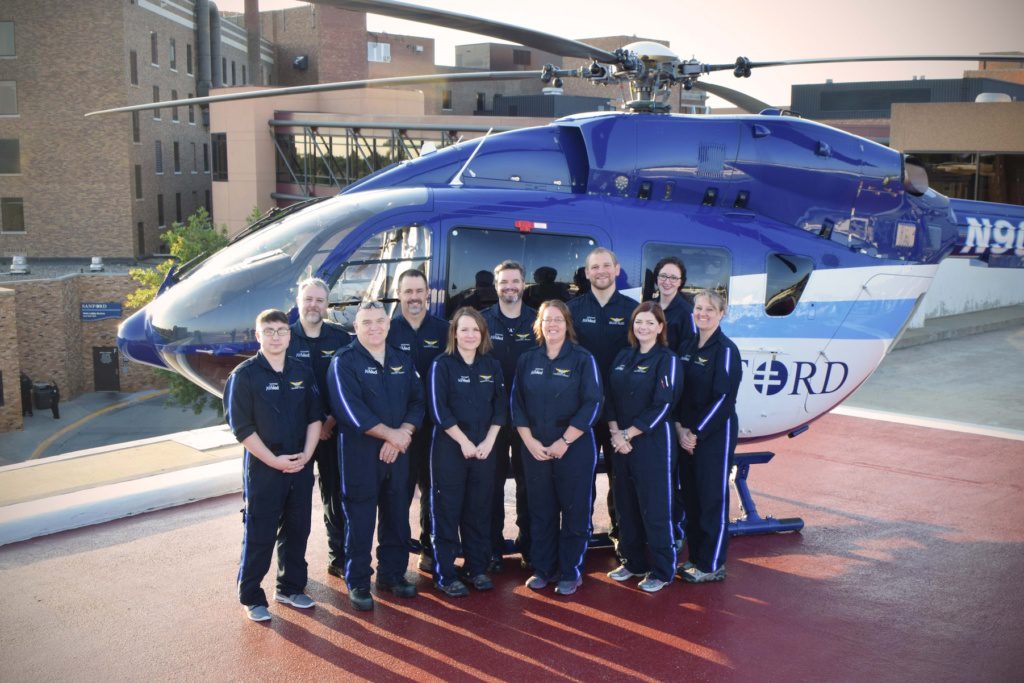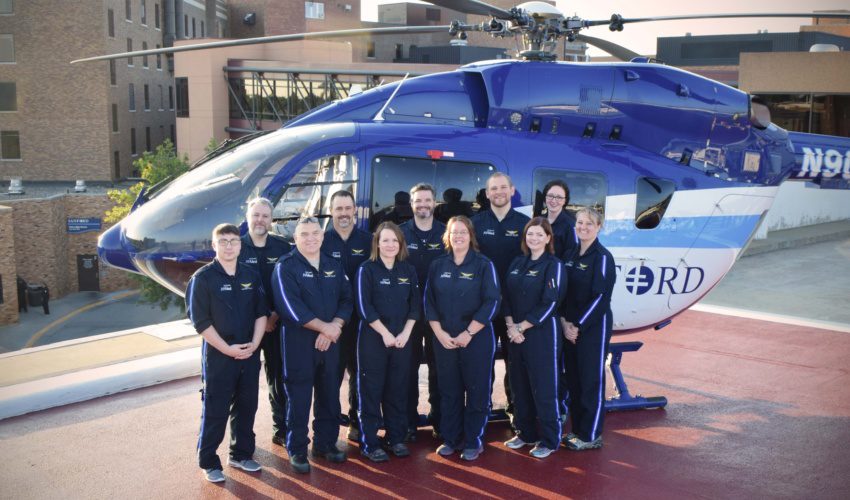DSU students help others breathe easy, one patient at a time
Aug. 12, 2019
This is paid piece is sponsored by Dakota State University
Kristi Specht’s college degree was inspired by something many of us take for granted: breathing.
Her degree in respiratory therapy from Dakota State University stemmed from her own struggle with lung disease.
“As a little girl, I was hospitalized with lung disease frequently. Because of this, I knew I wanted to go into health care but couldn’t decide which avenue to pursue. The DSU respiratory care program was the best decision I ever made,” she said.
With the only respiratory care program in South Dakota, DSU offers an associate degree in respiratory care and a bachelor’s degree in respiratory care. The DSU respiratory care program is offered to students in Sioux Falls and Rapid City.
“Our programs are built with a 2+2 program design. That means students can complete their AS degree and work as a Registered Respiratory Therapist (RRT) with full licensing potential in as little as five semesters,” said Lacy Patnoe, respiratory care program director at DSU.
“After completion, they can gain employment and work towards their BS degree, which was created with working professionals in mind.”
Specht’s education led to a career in the field. She’s now director of respiratory therapy at Sanford USD Medical Center. She credits DSU’s program for her knowledge and professional experience.
“Classes were small, and the instructors were able to focus more with each student. They provided hands-on experience with various respiratory equipment that is top of the line,” she said.
“These factors taught me how to interpret labs and tests, perform various therapies, assess a patient and how to trouble-shoot equipment. I graduated feeling extremely prepared to start my career.”
With hands-on and in-depth approaches, students such as Specht can develop skills in critical thinking and patient assessment. The respiratory care program covers a wide variety of topics, including, but not limited to:
- Respiratory care pathophysiology.
- Respiratory pharmacology.
- Patient assessment.
- Neonatal care.
- Adult ventilator/critical care management.
- Hemodynamic analysis.
“We have a 100 percent placement rate. Our students are trained to diagnose, treat and manage patients with cardiopulmonary disorders. They learn skills in neonatal and adult specialties, emergency and trauma, diagnostic testing and cardiopulmonary disease management,” Patnoe said.

Lacy Patnoe received the Distinguished RRT Credentialing Award from the Commission on Accreditation for Respiratory Care.
“They also work with the latest and most innovative equipment like ultrasounds, ventilators, blood gas analyzing machines and computerized documentation systems. They develop effective care plans, patient protocols and disease management programs.”
Candace Pumphrey, a respiratory care student, said she appreciates how DSU offers the latest equipment as well as older versions.
“So you really get a feel for how far technology has come in respiratory care. You can clock into clinicals from your own phone, log all activities and interactions online and track your classroom progression,” she said.
In addition to classroom coverage, students have access to seminars and conferences such as those offered by the South Dakota Society for Respiratory Care. Students can build their resume and network with potential employers by sitting on the SDSRC board of directors as a student representative. In addition, the organization offers scholarships and opportunities to attend National American Association for Respiratory Care conferences.
Dakota State also partners with Avera, Sanford and Regional Health, which offer paid internships and shadowing opportunities for interested applicants. These partnerships give students the opportunity to gain real-world experience by working with patients in a clinical setting.
“Our opportunities for conferences, paid internships and lectures from guest speakers are fascinating and provide real-life advice and experiences,” Pumphrey said.
It’s valuable as a respiratory care student to work in South Dakota at the hospitals where you conduct clincials, Specht added.
“This experience helped prepare me for graduation and for my national exam to become an RRT,” she said.
DSU alumna Ashley Frerichs had a similar experience. When it came to her degree, Frerichs sought a program that would provide a good balance between family and school.
“The remote location is very beneficial, and the information my classes gave me was organized, educational and directly related to the respiratory therapy field,” she said.
Thanks to the Rapid City and Sioux Falls locations, she was able to accomplish her dream and is now a respiratory therapist at Regional Health for outpatient services such as the pulmonary function lab and pulmonary rehab.
“I gained the knowledge to truly understand respiratory diagnoses through my exceptional classes and clinicals. They taught me how to maneuver the complex equipment I work with every day to help diagnose lung diseases,” Frerichs said.
Upon completion of the DSU respiratory care program, students are eligible to take the National Board for Respiratory Care exams to earn their national credential as an RRT. This credential earns the students licensing capability in any state.
So why be a part of the DSU respiratory care program?
To help patients breathe easy, and support the health care systems in and around South Dakota.
“We strive to produce graduates who are experts in their field and will fulfill the employment needs of our health care communities. This rewarding career has endless opportunities and is filled with extraordinary people,” Patnoe said.
For information, please visit dsu.edu/academics/degrees-and-programs.








